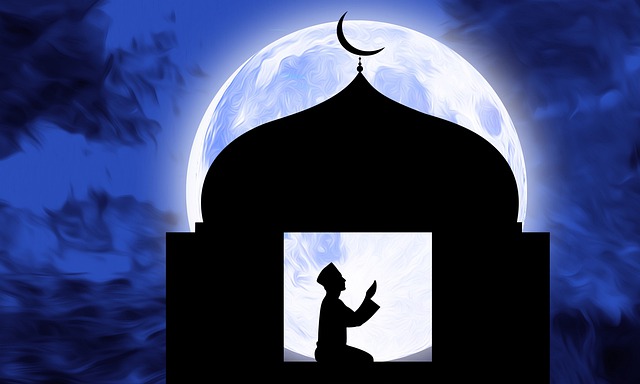Kapanlagi.com - Prophets and Messengers are chosen humans sent by Allah SWT to teach Islam. Prophets and Messengers lived in a time far before our time. However, stories of the greatness of Prophets and Messengers are often read through the holy book of the Quran and other reading materials. Despite both carrying noble responsibilities, there are differences between Prophets and Messengers.
Although they lived far in the past, it is an obligation for every Muslim to emulate the attitude and characteristics of the Prophets and Messengers. Yes, Prophets and Messengers are both role models for Muslims. However, it is still important to know the difference between Prophets and Messengers to avoid misunderstandings.
Summarized from various sources, here are some differences between Prophets and Messengers.
1. Understanding Prophets and Messengers

(credit: pixabay)
As mentioned earlier, Prophets and Messengers both have the noble task of spreading the teachings of Islam. However, it turns out that they have some differences. To understand these differences further, it is better for us to first understand the definition of Prophets and Messengers.
Prophets and Messengers appear several times in the verses of the Quran. One of them is in Surah Al-Hajj, verse 52. The verse has the following meaning:
"And We did not send before you any messenger or prophet except that when he wished, Satan threw into it [some misunderstanding]. But Allah abolishes that which Satan throws in; then Allah makes precise His verses. And Allah is Knowing and Wise." (Quran, Al-Hajj: 52)
In terms of language, the word 'Nabi' comes from the word 'naba' which means from a high place. However, generally, a prophet is often interpreted as a person who is entrusted with revelation from Allah SWT for himself. This means that the revelation received by the Prophet from Allah is not obligatory to be conveyed or taught to his people. Instead, the obligation of the prophet is limited to practicing it himself.
Meanwhile, the word 'Rasul' comes from the word 'risala' which means conveying. A Messenger also receives revelation from Allah. However, in addition to practicing it himself, a Messenger is obliged to teach the revelation to his people.
2. Number of Prophets and Messengers
Until now, we are familiar with some names of Prophets and Messengers. However, apart from those names, how many Prophets and Messengers are there actually? A hadith narrated by Abu Umamah states that Abu Dzar asked the Prophet Muhammad, peace be upon him, about the exact number of Prophets. He replied:
The number of Prophets is 124,000, among them 315 are Messengers. There are many. (HR. Ahmad no. 22288 and its chain is considered authentic by al-Albani in alMisykah).
However, in one of the verses of the Quran, the exact number of Prophets and Messengers is not mentioned. In one of its verses, Allah says the following:
"And We have certainly sent messengers before you. Among them are those We have related to you, and among them are those We have not related to you. And it was not for any messenger to bring a sign except by permission of Allah" (Quran, Al-Ghafir: 78).
In addition, in the Quran itself, only 25 names of Prophets are known. As Muslims, we are obliged to believe in them and emulate them. The 25 names of Prophets include: Adam, Idris, Noah, Hud, Saleh, Abraham, Lot, Ishmael, Isaac, Jacob, Joseph, Job, Shuaib, Moses, Aaron, Ezekiel, David, Solomon, Elias, Elisha, Jonah, Zechariah, John, Jesus, Muhammad.
3. Difference between Prophet and Messenger

(credit: pixabay)
There are several important differences between a Prophet and a Messenger that need to be known. These differences include the following.
1. The first difference is that a Prophet receives revelation from Allah to be practiced personally. Meanwhile, a Messenger receives revelation to be conveyed to his people.
2. Secondly, a Prophet is assigned or sent to a community that already believes. A Messenger is sent to a community that does not believe or is still disbelievers.
3. Thirdly, a Prophet has a greater number compared to a Messenger.
4. Being a Prophet does not necessarily mean being a Messenger, but being a Messenger definitely means being a Prophet.
5. A Prophet receives Allah's revelation through dreams. A Messenger receives revelation through dreams and it is conveyed through angels. In addition, a Messenger also has the ability to directly see and communicate with angels.
6. The sixth difference is that some Prophets were killed by their people. On the other hand, a Messenger will be saved by Allah from various assassination attempts.
4. The Virtue of the Mandatory Characteristics of a Messenger
Based on the aforementioned differences, it is known that the Messenger has a heavier duty than the Prophet. This is because, in addition to maintaining his faith and piety, the Messenger also has to spread the teachings of Islam and the revelations he receives. Therefore, the Messenger is known to have several mandatory and essential characteristics. These characteristics include:
1. Shidiq, which means true or honest. It is impossible for the Messenger to have the characteristic of Kadzib or liking to lie.
2. Amanah, which means trustworthy. It is impossible for a messenger to be treacherous.
3. Tabligh, which means conveying. It is impossible for the Messenger to have the characteristic of kitman or hiding his teachings.
4. Fathonah, which means intelligent. It is impossible for the Messenger to have the characteristic of forgetfulness.
5. The Ulul Azmi Prophets

(credit: pixabay)
Among the 25 Prophets and Messengers, there are some known as the Ulul Azmi Prophets. These Prophets are known to have extraordinary patience and endurance in facing trials. Therefore, their stories often become examples for the Muslim community. The five Prophets are: Prophet Noah (AS), Prophet Abraham (AS), Prophet Moses (AS), Prophet Jesus (AS), and Prophet Muhammad (PBUH). They are known to have inspirational life stories that can strengthen faith.
Those are among the explanations about the differences between Prophets and Messengers. Hopefully, they are beneficial in increasing knowledge and faith. Amen.
(kpl/psp)
Disclaimer: This translation from Bahasa Indonesia to English has been generated by Artificial Intelligence.















